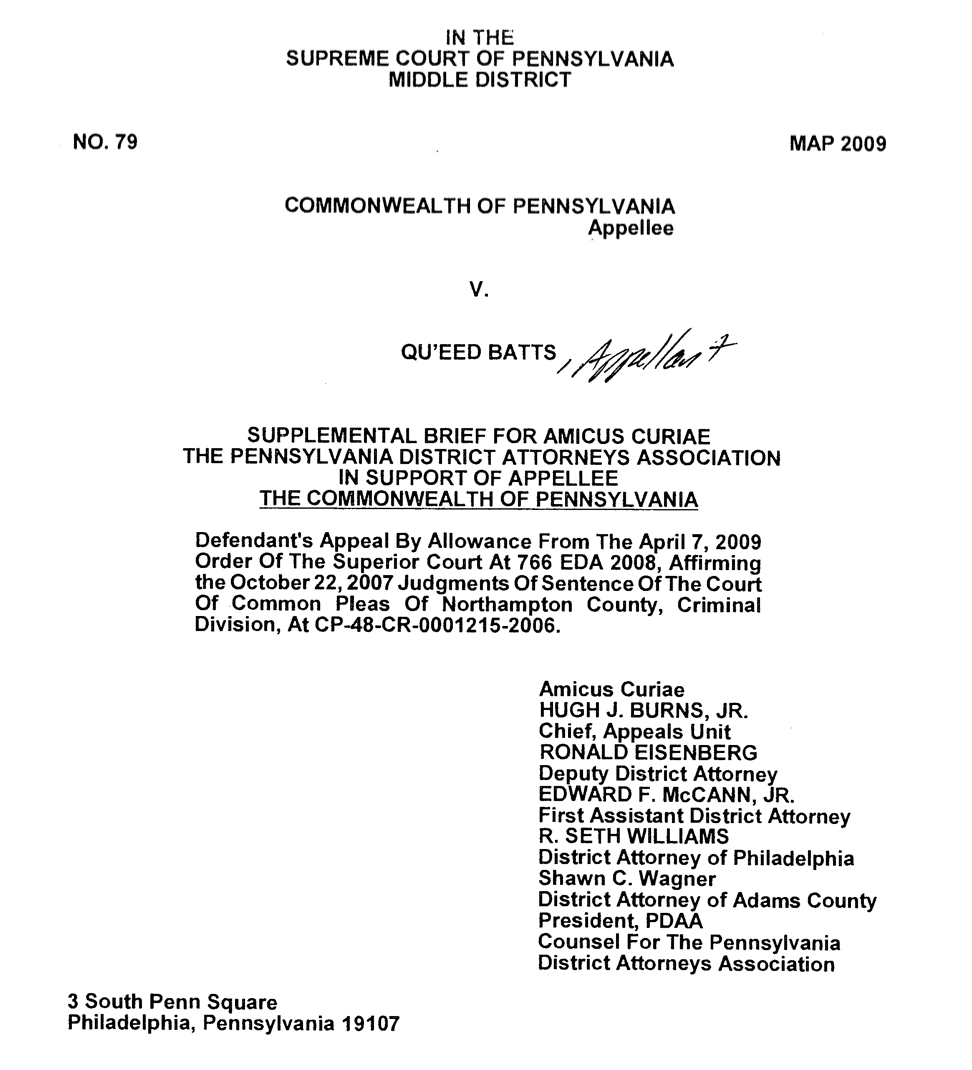
Summary of Argument
Miller and Montgomery require a trial level decision that, while factually complex, is straightforward: whether the offender is in the broad protected class immune to life without parole. Because the class is very broadly defined – it includes all but the “irretrievably depraved” – most juveniles are in it, and juvenile life without parole will be rare, as Miller intends. The General Assembly (18 Pa.C.S. § 1102.1), this Court (Commonwealth v. Batts), and Montgomery (explaining the “substantive character” of Miller), adequately guide trail court discretion.
Defendant and his amici nevertheless insist that far more intrusive and comprehensive supervision of trial judges is needed. But this attack on the constitutionality of § 1102.1 has no basis. There is no reason to suppose trial judges will not act within the law, or that the Superior Court cannot adjudicate an alleged abuse of discretion under the proper standard. Further, this Court has consistently declined to step in to supplant acts of the General Assembly that have not even had a chance to operate. There is no need to cast a preemptive vote of no-confidence in trial judges and the Superior Court, let alone by re-writing § 1102.1 into a new version of § 9711. That would be an inherently legislative undertaking.
Defendant’s legislative plan for substituting a complex capital sentencing process for § 1102.1 would actually work against Miller. That case creates a subset derived from persons convicted of first degree murder, and defines a broad category of juvenile offenders immune to life without parole. Presuming an offender is necessarily in the protected class would motivate defendants to withhold information Miller demands concerning their “capacity for change” or “emotional maturity.” Likewise, since the majority of juvenile offenders will clearly be in the broadly defined protected class, requiring expert testimony in every case would waste judicial resources.
Nothing is served by revoking judicial independence of trial judges on the unfounded claim that Miller is too much for them. Trial courts already have guidance, from the legislature and this Court, to comply with Miller, and their decisions are subject to Superior Court review. Because there is nothing broken for them to fix, defendant’s legislative policy prescriptions should be deferred or declined.